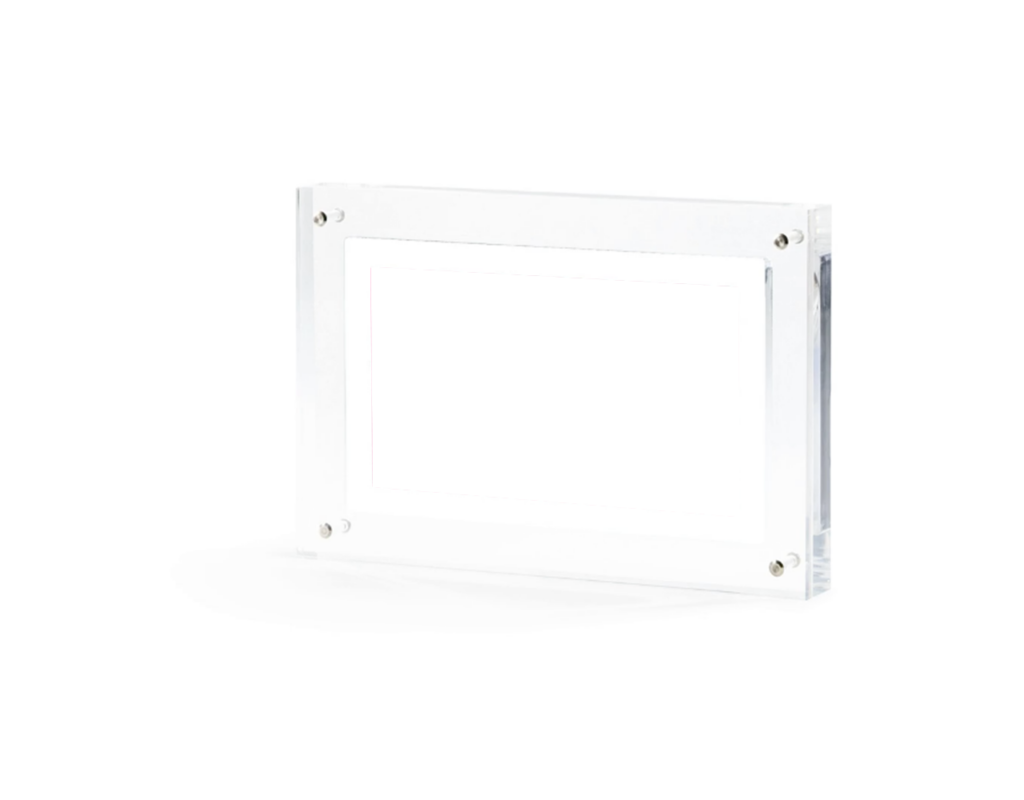The Studiengalerie der Technische Hochschule Stuttgart presents the first-ever public exhibition of computer-generated images as art.
The contest defines “computer art” as “examples of visual creativity in which a computer plays a dominant role.”
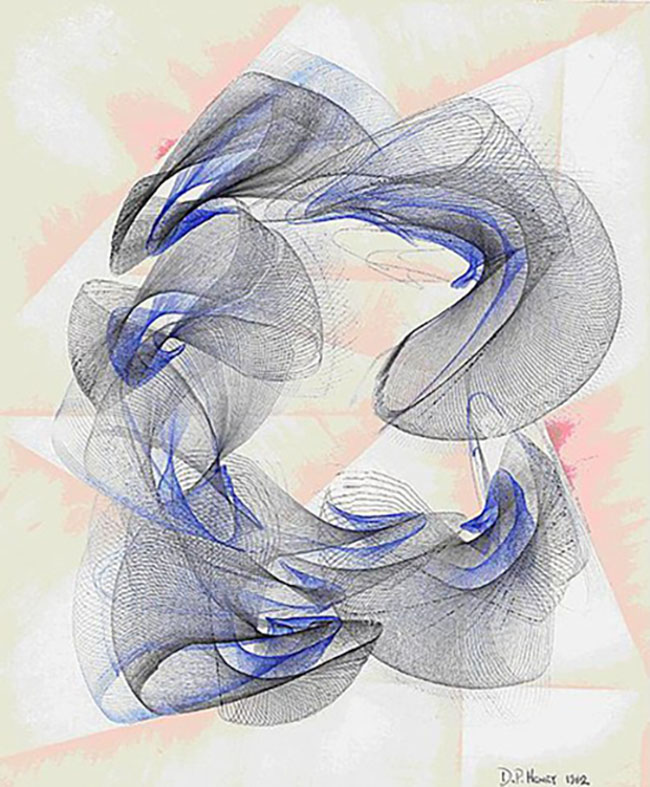
The contest defines “computer art” as “examples of visual creativity in which a computer plays a dominant role.”
The Studiengalerie der Technische Hochschule Stuttgart presents the first-ever public exhibition of computer-generated images as art.
Manhattan’s Howard Wise Gallery presents this first American exhibition of computer art, featuring works by A. Michael Noll and Béla Julesz.
Galerie Wendelin Niedlich in Stuttgart presents the third exhibition of computer art, featuring works by Georg Nees and Frieder Nake.
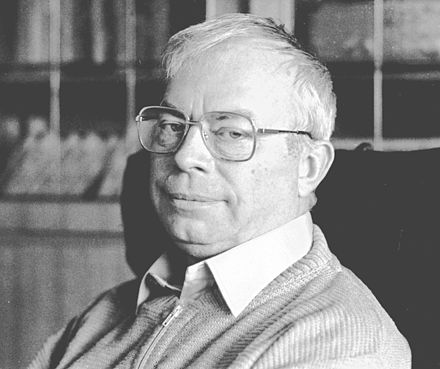
The Studiengalerie der Technische Hochschule Stuttgart presents the first-ever public exhibition of computer-generated images as art.
Manhattan’s Howard Wise Gallery presents this first American exhibition of computer art, featuring works by A. Michael Noll and Béla Julesz.
Galerie Wendelin Niedlich in Stuttgart presents the third exhibition of computer art, featuring works by Georg Nees and Frieder Nake.
Masao Komura, Haruki Tsuchiya, Kunio Yamanaka, and Junichiro Kakizaki found the Computer Technique Group (CTG) in Japan.
Founded by kinetic artist and aeronautical engineer Frank Malina, the journal will go on 1969 to publish important primary accounts and secondary scholarship in the field of digital art and art and technology more broadly.
This magazine dedicated to the theoretical links between computers and art is published by a group of artists related to the [Nove] tendencije (New Tendencies) movement.
ICA London presents the first major museum presentation of computer-generated images, films, sculptures, songs, and other creative forms, curated by Jasia Reichardt.
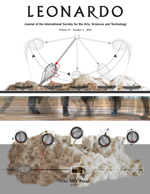
Founded by kinetic artist and aeronautical engineer Frank Malina, the journal will go on 1969 to publish important primary accounts and secondary scholarship in the field of digital art and art and technology more broadly.
This magazine dedicated to the theoretical links between computers and art is published by a group of artists related to the [Nove] tendencije (New Tendencies) movement.
ICA London presents the first major museum presentation of computer-generated images, films, sculptures, songs, and other creative forms, curated by Jasia Reichardt.
A group of young musicians and artists including Hervé Huitric and Manfred Mohr (joined later by Monique Nahas) found the Groupe Art et Informatique de Vincennes (GAIV).
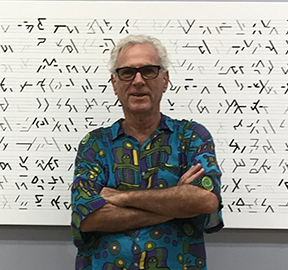
A group of young musicians and artists including Hervé Huitric and Manfred Mohr (joined later by Monique Nahas) found the Groupe Art et Informatique de Vincennes (GAIV).
The Jewish Museum presents Software, which explores the importance of software as a metaphor for conceptual art.
Thanks to this presentation at the Musée d’Art Moderne de la Ville de Paris, Mohr becomes the first computer artist to have a solo museum exhibition.
David Ahl launches the first major magazine for computer hobbyists to promote the use of personal computers to create games, art, and other creative forms.
This organization, which presents an annual trade show for people working with computer graphics, is founded as part of the Association for Computing Machinery (ACM).
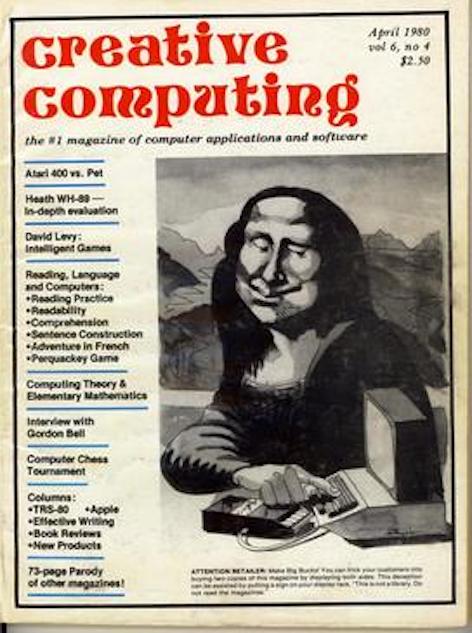
David Ahl launches the first major magazine for computer hobbyists to promote the use of personal computers to create games, art, and other creative forms.
This organization, which presents an annual trade show for people working with computer graphics, is founded as part of the Association for Computing Machinery (ACM).
Ruth Leavitt’s anthology includes interviews with thirty-five leading computer artists, including Vera Molnár, Kenneth Knowlton, Charles Csuri, Manfred Mohr, Lillian Schwartz, and Hiroshi Kawano.
The longest-running media art festival launches in Linz. The organization will open its first year-round museum in 1996.
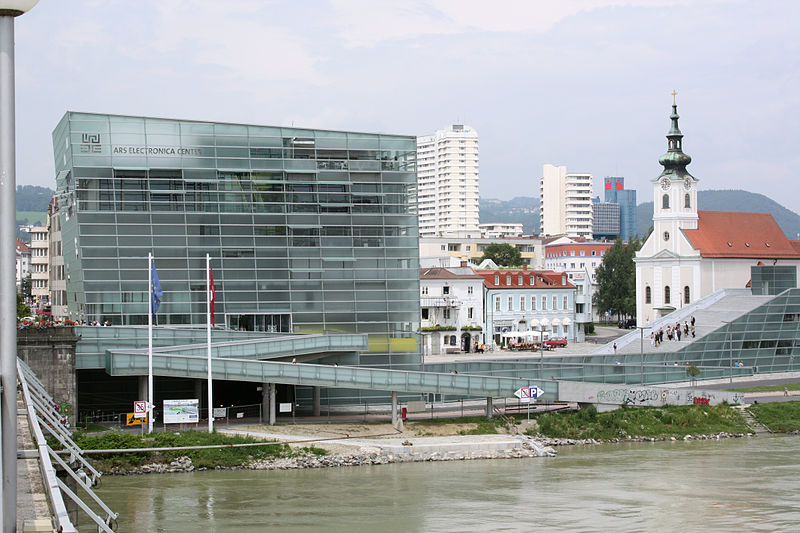
The longest-running media art festival launches in Linz. The organization will open its first year-round museum in 1996.
This conference at SFMOMA includes live global video links and leads to the launch of ARTBOX (later ARTEX), the first significant digital network for artists, which will support key projects throughout the 1980s.
The theme is “Art and Science,” and it includes the presentations “Technology and Informatics” and “Art and Computer.”
Early categories include “Computer Graphics,” “Computer Animation,” “Computer Music,” and “Interactive Art.” A new category for net art is introduced in 1995, but is dropped in 2006.

Early categories include “Computer Graphics,” “Computer Animation,” “Computer Music,” and “Interactive Art.” A new category for net art is introduced in 1995, but is dropped in 2006.
These symposia (now organized by the ISEA Foundation) for organizations and individuals working with digital and other electronic arts are held in a different city every year.
Having moved into its current complex in 1997 and operating under the direction of Peter Weibel since 1999, ZKM has become a leading museum for digital and other forms of media art.
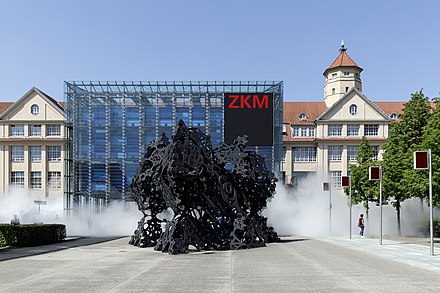
Having moved into its current complex in 1997 and operating under the direction of Peter Weibel since 1999, ZKM has become a leading museum for digital and other forms of media art.
Wolfgang Staehle launches this BBS (Bulletin Board System) in New York City, which will become a hotbed of making and sharing online art, with nodes in multiple cities across Europe.
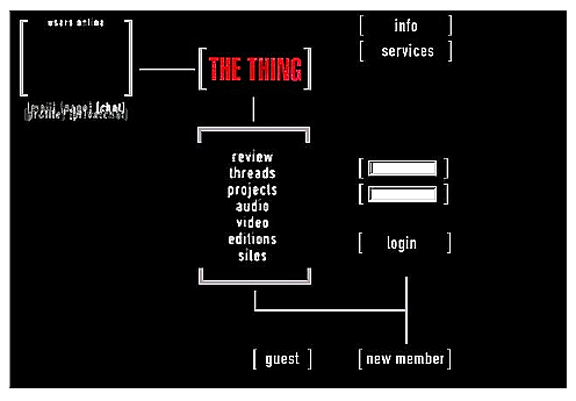
Wolfgang Staehle launches this BBS (Bulletin Board System) in New York City, which will become a hotbed of making and sharing online art, with nodes in multiple cities across Europe.
John Bothwick and Benjamin Weil found this platform for artists (including Lawrence Weiner and Jenny Holzer) to make and share experiments with the web.
Pit Schultz presents screenshots of net.art projects in the Berlin nightclub Bunker, including works from Vuk Ćosić, JODI, Alexei Shulgin, and Heath Bunting, among others.
Geert Lovink and Pit Schultz launch this email list as part of the Club Berlin event at the Venice Biennale. The community would become associated with the term net.art, which Schultz coined.
Douglas Davis’s website The World’s First Collaborative Sentence, 1994, is gifted to the museum by its collectors.
Postmasters gallery in New York City presents this group show of digital works (including one about cryptography), many available for purchase on floppy disks and CDs, becoming the first commercial gallery to support digital and net artists.
Developed by the Electronic Visualization Laboratory in Chicago and debuted at SIGGRAPH ’92, the CAVE will host around 50 virtual reality projects over the next 12 years.
Artist Mark Tribe launches this list for the net art community, which later spawns a website, online database, and non-profit organization now affiliated with the New Museum in New York City.
Ruth Catlow and Marc Garrett found this non-profit art and technology “(de)center” in London. In 2006, they coined the term DIWO (Doing It With Others) to promote decentralized relationships in the arts.
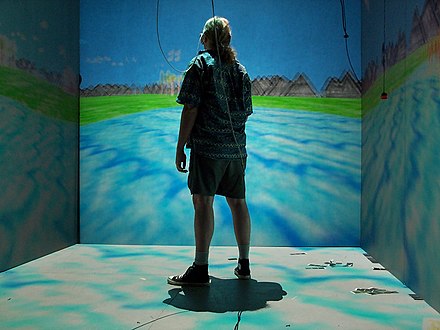
Postmasters gallery in New York City presents this group show of digital works (including one about cryptography), many available for purchase on floppy disks and CDs, becoming the first commercial gallery to support digital and net artists.
Developed by the Electronic Visualization Laboratory in Chicago and debuted at SIGGRAPH ’92, the CAVE will host around 50 virtual reality projects over the next 12 years.
Artist Mark Tribe launches this list for the net art community, which later spawns a website, online database, and non-profit organization now affiliated with the New Museum in New York City.
Ruth Catlow and Marc Garrett found this non-profit art and technology “(de)center” in London. In 2006, they coined the term DIWO (Doing It With Others) to promote decentralized relationships in the arts.
The Berlin-based VideoFilmFest (itself founded in 1988) transforms into this annual media art festival, which also presents year-round programming and publications.
The main exhibition includes net artists Heath Bunting, JODI, and Antoni Muntadas; a satellite site called “Hybrid WorkSpace” presents net art on computers installed in an office-like room at the Orangerie.
Curated by Steve Dietz, the Walker Art Center hosts this platform for net art, which also includes interviews with artists including Jennifer and Kevin McCoy, Auriea Harvey, and Paul Vanouse.
The Japanese telecom company NTT opens this center devoted to the intersection of science, technology, and art in Tokyo.
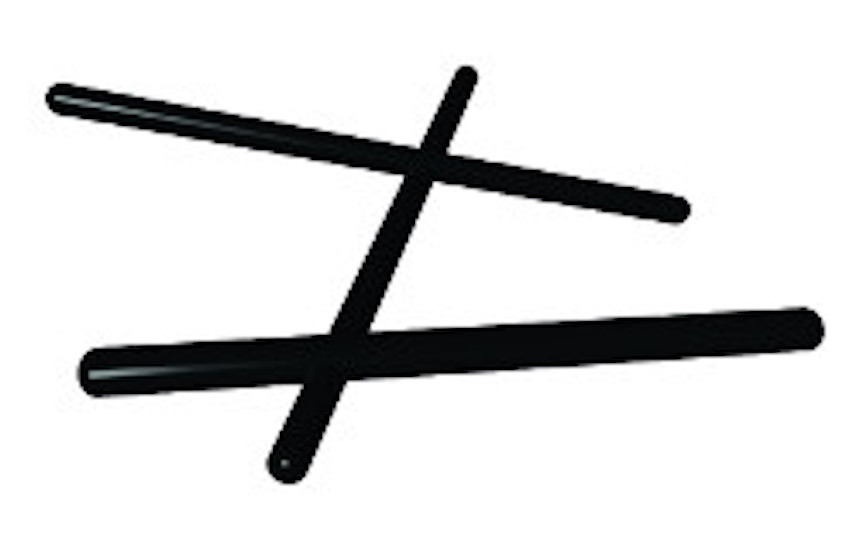
The Berlin-based VideoFilmFest (itself founded in 1988) transforms into this annual media art festival, which also presents year-round programming and publications.
The main exhibition includes net artists Heath Bunting, JODI, and Antoni Muntadas; a satellite site called “Hybrid WorkSpace” presents net art on computers installed in an office-like room at the Orangerie.
Curated by Steve Dietz, the Walker Art Center hosts this platform for net art, which also includes interviews with artists including Jennifer and Kevin McCoy, Auriea Harvey, and Paul Vanouse.
The Japanese telecom company NTT opens this center devoted to the intersection of science, technology, and art in Tokyo.
Brandon, 1998-99, also becomes the first work of net art commissioned by a major art museum.
This New York-based center for artists creatively working with technology is known for its artist fellowships and public programming focused on taking a critical view of technology.
The Guggenheim Museum unites media artists and museum workers to address the unique challenges of presenting and conserving media art.
An “Internet Art Gallery” was presented as large video projections in the galleries, as well as on a bank of computers and on the Biennial's webpage.
Commissioned artists include Graham Harwood, Heath Bunting, Young-Hae Chang Heavy Industries, and Natalie Bookchin.
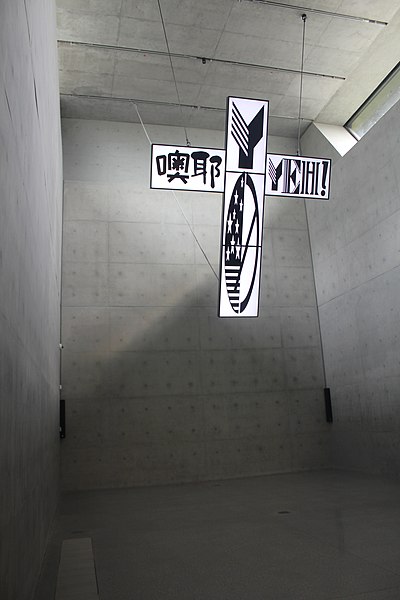
An “Internet Art Gallery” was presented as large video projections in the galleries, as well as on a bank of computers and on the Biennial's webpage.
Commissioned artists include Graham Harwood, Heath Bunting, Young-Hae Chang Heavy Industries, and Natalie Bookchin.
This SFMOMA survey of art in the digital age, presented in its galleries and online, includes works by Char Davies, Entropy8Zuper!, Lee Bul, and Thomson & Craighead, among others.
Curated by Christiane Paul, this site commissions work from Casey Reas, Ubermorgen, Addie Wagenknecht, Eteam, Eva and Franco Mattes, Morehshin Allahyari, and Michael Mandiberg, among others.
Eva and Franco Mattes unleash the Python-based virus Biennale.py (created with the hacker group Epidemic) during the opening, and also exhibit it on computers in the Slovenian Pavilion.
The first gallery dedicated to digital art, Bitforms will represent artists including Beryl Korot, Rafael Lozano-Hemmer, Manfred Mohr, Casey Reas, and Addie Wagenknecht.
This free and open-source program, developed by Ben Fry and Casey Reas, becomes a powerful tool for visual artists to learn and experiment with code.
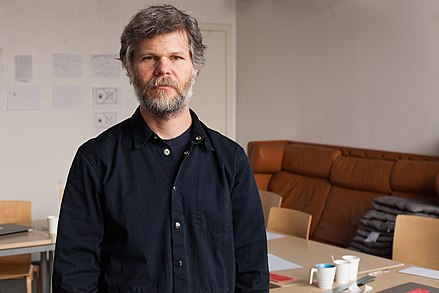
This SFMOMA survey of art in the digital age, presented in its galleries and online, includes works by Char Davies, Entropy8Zuper!, Lee Bul, and Thomson & Craighead, among others.
Curated by Christiane Paul, this site commissions work from Casey Reas, Ubermorgen, Addie Wagenknecht, Eteam, Eva and Franco Mattes, Morehshin Allahyari, and Michael Mandiberg, among others.
Eva and Franco Mattes unleash the Python-based virus Biennale.py (created with the hacker group Epidemic) during the opening, and also exhibit it on computers in the Slovenian Pavilion.
The first gallery dedicated to digital art, Bitforms will represent artists including Beryl Korot, Rafael Lozano-Hemmer, Manfred Mohr, Casey Reas, and Addie Wagenknecht.
This free and open-source program, developed by Ben Fry and Casey Reas, becomes a powerful tool for visual artists to learn and experiment with code.
Seth Price's canonical essay/artwork highlights how the internet is contributing to an increasing emphasis on how art is circulated (rather than produced) in contemporary art.
Thames and Hudson publishes the first edition of Christiane Paul’s survey in its mass market paperback “World of Art” series.
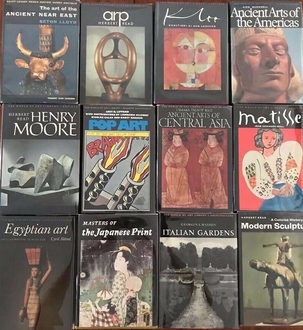
Thames and Hudson publishes the first edition of Christiane Paul’s survey in its mass market paperback “World of Art” series.
A group of artists begin posting seemingly random things they discover while surfing the internet to their collaborative blog, giving rise to the term “surf club" to describe similar such groups.
The exhibition and its related book and website highlight the use of videogames to make art, as seen in the practices of artists like Cory Arcangel and JODI.
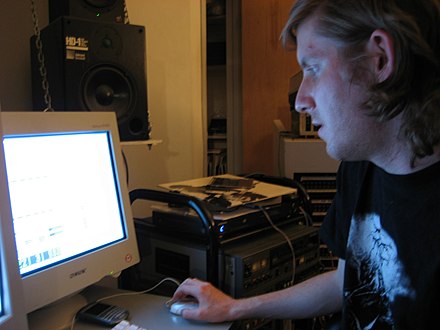
A group of artists begin posting seemingly random things they discover while surfing the internet to their collaborative blog, giving rise to the term “surf club" to describe similar such groups.
The exhibition and its related book and website highlight the use of videogames to make art, as seen in the practices of artists like Cory Arcangel and JODI.
Curated by Christiane Paul, these interventions are by artists including Stephanie Rothenberg, R. Luke DuBois, JODI, Rafaël Rozendaal, Lorna Mills, Carla Gannis, American Artist, LaTurbo Avedon, and Ryan Kuo.
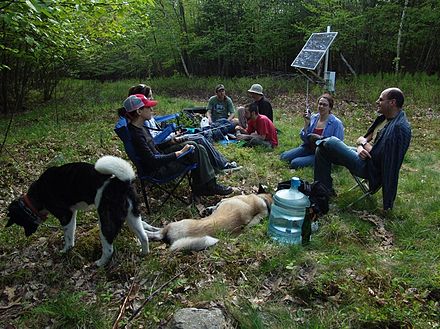
Curated by Christiane Paul, these interventions are by artists including Stephanie Rothenberg, R. Luke DuBois, JODI, Rafaël Rozendaal, Lorna Mills, Carla Gannis, American Artist, LaTurbo Avedon, and Ryan Kuo.
This museum in Basel collects digital art and organizes exhibitions and publications on individual artists and topics such as virtual reality, artificial intelligence, and gaming.
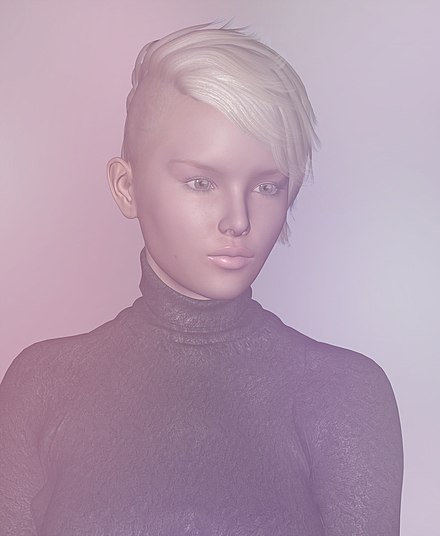
This museum in Basel collects digital art and organizes exhibitions and publications on individual artists and topics such as virtual reality, artificial intelligence, and gaming.
Author Bruce Sterling helps define and popularize the term coined by James Bridle to describe an aesthetic resulting from the blurring of physical and digital reality.
Claire Bishop's essay in Artforum sparks a debate about the relationship between the worlds of mainstream contemporary art and new media art.
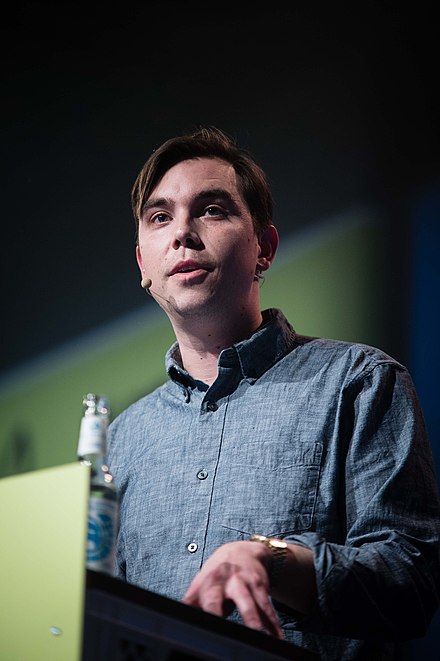
Author Bruce Sterling helps define and popularize the term coined by James Bridle to describe an aesthetic resulting from the blurring of physical and digital reality.
Claire Bishop's essay in Artforum sparks a debate about the relationship between the worlds of mainstream contemporary art and new media art.
Originally based in Brooklyn, this gallery for born-digital art will feature artists including LaTurbo Avedon, Carla Gannis, Angela Washko, Morehshin Allahyari, Rosa Menkman, Claudia Hart, Lorna Mills, and Faith Holland.
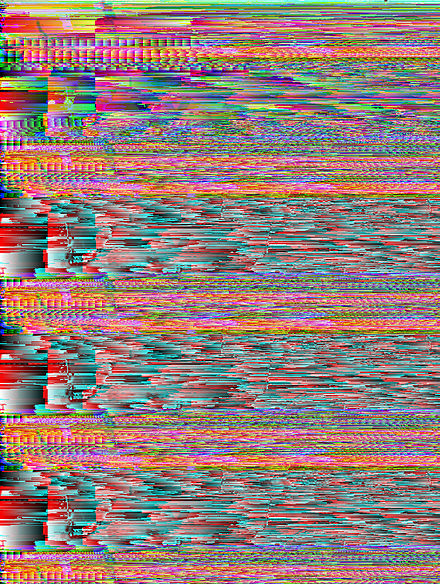
Originally based in Brooklyn, this gallery for born-digital art will feature artists including LaTurbo Avedon, Carla Gannis, Angela Washko, Morehshin Allahyari, Rosa Menkman, Claudia Hart, Lorna Mills, and Faith Holland.
This London gallery for digital art grows to include a physical exhibition space, online exhibition platform, educational program, and studio spaces.
UCCA Beijing hosts this survey that helps to define a field of contemporary artists who address "the centrality of the network," including Cory Arcangel, Harm van den Dorpel, and Artie Vierkant.
Paired by Rhizome, Kevin McCoy and Anil Dash build Monegraph within one day and create the first digital art token (later to be called an NFT).
The French artists use the dark-net and Bitcoin to acquire a scanned copy of Satoshi Nakamoto's passport.
Austrian Cointemporary platform showcases temporary online exhibitions of Bitcoin art, available for Bitcoin only.
In this conceptual artwork, the smart contract can be set to nominate itself as art or not with a click of a mouse and the payment of the gas fee.
In this conceptual artwork, the smart contract can be set to nominate itself as art or not with a click of a mouse and the payment of the gas fee.
Artist Rhea Myers tokenized her soul conceptually as an MYSOUL token on the DogeCoin and CounterParty blockchain.
BitchCoin is an artwork-backed currency by Sarah Meyohas that aims to challenge the current economics of the art world.
The 2015 New Museum Triennial foregrounds the internet's impact on identity and culture, featuring artists like DIS, Aleksandra Domanović, Oliver Laric, and Martine Syms.
Digital trading cards issued on the CounterParty blockchain by the EverdreamSoft game studio, these cards later become the game Spells of Genesis.
Scarab is simultaneously an artist collective and a work of art itself based on the CounterParty blockchain.
Coin Artist Marguerite Christin released her puzzle painting and raised attention for the 4.87 Bitcoin reward and the 3 years to solve it.
The Austrian Museum of Applied Arts became the first museum to buy a digital artwork using Bitcoin when it purchases Event Listeners, 2015, from Dutch artist Harm van den Dorpel.
Los Angeles-based Verisart is a platform for creating digital certificates for art and collectibles backed by the blockchain.
The first spore of the autonomous blockchain-based lifeform is created during a workshop at the Stadtwerkstatt in Linz, Austria.
Created in 2014, this collage of destructed credit cards raises the equivalent of $5.5k in Nov 2015 (or $150k in May 2020) for the benefit of Dorian Nakamoto.
The artists showcase their shopping bot that uses Bitcoin to buy random items on the darknet at Horatio Junior Gallery in London.
Artist Harm van den Dorpel and Paloma Rodríguez Carrington launch left.gallery as a digital art gallery based on the Ascribe platform.

BitchCoin is an artwork-backed currency by Sarah Meyohas that aims to challenge the current economics of the art world.
The 2015 New Museum Triennial foregrounds the internet's impact on identity and culture, featuring artists like DIS, Aleksandra Domanović, Oliver Laric, and Martine Syms.
Digital trading cards issued on the CounterParty blockchain by the EverdreamSoft game studio, these cards later become the game Spells of Genesis.
Scarab is simultaneously an artist collective and a work of art itself based on the CounterParty blockchain.
Coin Artist Marguerite Christin released her puzzle painting and raised attention for the 4.87 Bitcoin reward and the 3 years to solve it.
The Austrian Museum of Applied Arts became the first museum to buy a digital artwork using Bitcoin when it purchases Event Listeners, 2015, from Dutch artist Harm van den Dorpel.
Los Angeles-based Verisart is a platform for creating digital certificates for art and collectibles backed by the blockchain.
The first spore of the autonomous blockchain-based lifeform is created during a workshop at the Stadtwerkstatt in Linz, Austria.
Created in 2014, this collage of destructed credit cards raises the equivalent of $5.5k in Nov 2015 (or $150k in May 2020) for the benefit of Dorian Nakamoto.
The artists showcase their shopping bot that uses Bitcoin to buy random items on the darknet at Horatio Junior Gallery in London.
Artist Harm van den Dorpel and Paloma Rodríguez Carrington launch left.gallery as a digital art gallery based on the Ascribe platform.
This Encyclopedia is the first physical book cataloging bitcoin and other cryptocurrency collectibles.
Frieze New York includes this presentation of virtual reality works by artists including Anish Kapoor and Rachel Rossin, representing a surge of interest in VR in the mainstream art world.
A blockchain-themed group exhibition hosted by Cryptograffiti and the San Francisco Bitcoin Meetup at Code & Canvas.
Release of the first User-/Artist-issued trading cards based on the CounterParty blockchain, arguably the first issuance of crypto art.
Book of Orbs is a CounterParty exchange for game items that supports game-related currencies such as BitCrystals, WillCoins, and PepeCash.
The CounterParty-based Rare Pepe card by DJ J-SCRILLA is a NFT that unlocks access to his hidden Soundcloud account through message signing.
Rhizome's project conserves and presents critical writing on 100 key examples of net art, culminating in a 2019 book and New Museum exhibition.
Cryptograffiti showcases his Bitcoin-themed works in a solo exhibition at the Digital Garage in San Francisco. N0416
Simon Denny's sculptural installations explore the potential applications of blockchain technology at the Hammer Museum.
DJ J-SCRILLA and professor/attorney Cynthia Gayton air the first of their 27 podcast episodes about digital tokens, art on the blockchain and its uses.
A digital card game based on the CounterParty blockchain by the EverdreamSoft game studio.
Curio Card offers rare digital art cards and is the first Ethereum-based NFT art token marketplace.
Curated by Sam Hart, this exhibition presents works by Sam Hart, Melanie Hoff, Nora Khan, Lars TCF Holdhus, Rhea Myers, Simon Denny, and FOAM
Limited to 10,000 digital collectibles, crypto punks were issued for free on the Ethereum blockchain by Larva Labs.
This early ERC-20 crypto collectible lies dormant for many years. Rediscovered in March 2021, all 25,600 cats sell within hours.
Inspired by Yves Klein, these tokens are minted using ERC-20 and exhibited inside Chan's solo show at InterAccess Toronto, one of the first exhibitions of tokenized art in a gallery space.
Edited by Ruth Catlow, Marc Garrett, Nathan Jones and Sam Skinner, this book features many blockchain art pioneers including Primavera De Filippi, Simon Denny, Rhea Myers, and Holly Herndon and Mat Dryhurst.
Digital collectible cats issued on the Ethereum blockchain by Dapper Labs, creating the ERC-721 NFT token standard.
Founded in 2014, DADA launches with Creeps & Weirdos, its first collection of Rare Digital Artworks; all artworks on DADA are created on the platform.
Artist Stellabelle's first sizeable crypto artist communities educated about opportunities/crypto projects based on the Steem blockchain.
OpenSea launches its Alpha of the first decentralized exchange and marketplace for digital collectibles.
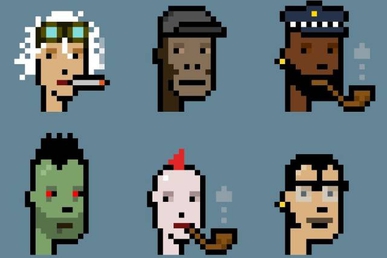
Simon Denny's sculptural installations explore the potential applications of blockchain technology at the Hammer Museum.
DJ J-SCRILLA and professor/attorney Cynthia Gayton air the first of their 27 podcast episodes about digital tokens, art on the blockchain and its uses.
A digital card game based on the CounterParty blockchain by the EverdreamSoft game studio.
Curio Card offers rare digital art cards and is the first Ethereum-based NFT art token marketplace.
Curated by Sam Hart, this exhibition presents works by Sam Hart, Melanie Hoff, Nora Khan, Lars TCF Holdhus, Rhea Myers, Simon Denny, and FOAM
Limited to 10,000 digital collectibles, crypto punks were issued for free on the Ethereum blockchain by Larva Labs.
This early ERC-20 crypto collectible lies dormant for many years. Rediscovered in March 2021, all 25,600 cats sell within hours.
Inspired by Yves Klein, these tokens are minted using ERC-20 and exhibited inside Chan's solo show at InterAccess Toronto, one of the first exhibitions of tokenized art in a gallery space.
Edited by Ruth Catlow, Marc Garrett, Nathan Jones and Sam Skinner, this book features many blockchain art pioneers including Primavera De Filippi, Simon Denny, Rhea Myers, and Holly Herndon and Mat Dryhurst.
Digital collectible cats issued on the Ethereum blockchain by Dapper Labs, creating the ERC-721 NFT token standard.
Founded in 2014, DADA launches with Creeps & Weirdos, its first collection of Rare Digital Artworks; all artworks on DADA are created on the platform.
Artist Stellabelle's first sizeable crypto artist communities educated about opportunities/crypto projects based on the Steem blockchain.
OpenSea launches its Alpha of the first decentralized exchange and marketplace for digital collectibles.
The sale of a Homer Pepe card at the emblematic Rare Digital Art Festival in New York City for the equivalent of $38,500 goes viral.
The ICA Boston's survey epitomizes what Brian Droitcour terms "The Internet Show" and represents the increasing interest of museums in technology as a theme.
In celebration of Valentine's Day, Kevin Abosch created this fractionalized artwork with the gifting protocol GIFTO.io
Token holders/shareholders participate in decisions on Jonas Lund's artistic practice and life. M2118
Platform for digital original artwork registered on the Ethereum blockchain by Brooklyn-based Pixura.
Platform for digital original and editioned artwork registered on the Ethereum blockchain by Manchester-based BlockRocket.
New Zealand-based, this virtual reality world became one of the primary exhibition spaces for crypto art and digital collectibles.
Artists, curators, and visionaries come together to discuss the potential impact of blockchain on art.
Maecenas auctions Andy Warhol’s 14 Small Electric Chairs at UK-based Dadiani Fine Art gallery.
Platform for digital original artwork registered on the Ethereum blockchain by Rare Art Labs based in Richmond, VA.
After a controversial Initial Coin Offering, the Codex protocol launches as a provenance registry for art and collectibles.
Auction house Christie’s hosted its first one-day art+tech conference entitled: Exploring Blockchain — Is the Art World Ready For Consensus?
CryptoArte creates generative tokens and paintings based on the hash values of Ethereum transaction blocks.
This examination of art and the blockchain at Berlin's Schinkel Pavillon is curated by Simon Denny in dialogue with Harm van den Dorpel, Sarah Hamerman and Sam Hart, and Kei Kreutler, among others.
UK artist Anna Ridler was commissioned to create a Bitcoin price visualization based on her AI-generated tulip images.
New Art Academy hosted the NYC ArtTech + Blockchain Connect Kimmel at the Center for University Life during, also launch of the Rare Pepe book.
89 Seconds Atomized is not only an art installation but also an experiment in digital ownership and community.
Christie's documented and recorded the $323.1 million in sales of its Ebsworth auction with Artory on the Blockchain.
Blockchain-themed exhibition curated by Georg Bak at the Kate Vass Gallery in Zurich, Switzerland.
Mintable is an open platform for ERC-721 tokens. In December 2020, the platform relaunched as an NFT-governed DAO. D0118
Italian artist duo Hackatao showcases in their show crypto art and a selection of international crypto artists.
Black Swan by Cryptograffiti becomes the least expensive painting ever sold for 1 millisatoshi or $0.000000037 at the time of auction.
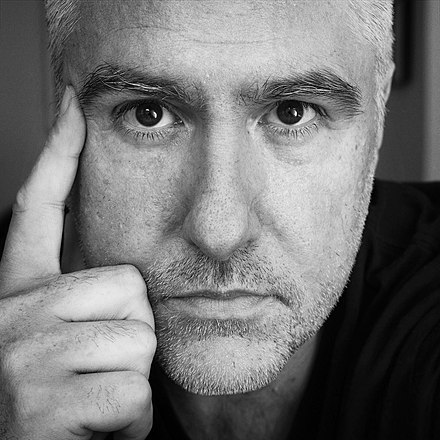
The sale of a Homer Pepe card at the emblematic Rare Digital Art Festival in New York City for the equivalent of $38,500 goes viral.
The ICA Boston's survey epitomizes what Brian Droitcour terms "The Internet Show" and represents the increasing interest of museums in technology as a theme.
In celebration of Valentine's Day, Kevin Abosch created this fractionalized artwork with the gifting protocol GIFTO.io
Token holders/shareholders participate in decisions on Jonas Lund's artistic practice and life. M2118
Platform for digital original artwork registered on the Ethereum blockchain by Brooklyn-based Pixura.
Platform for digital original and editioned artwork registered on the Ethereum blockchain by Manchester-based BlockRocket.
New Zealand-based, this virtual reality world became one of the primary exhibition spaces for crypto art and digital collectibles.
Artists, curators, and visionaries come together to discuss the potential impact of blockchain on art.
Maecenas auctions Andy Warhol’s 14 Small Electric Chairs at UK-based Dadiani Fine Art gallery.
Platform for digital original artwork registered on the Ethereum blockchain by Rare Art Labs based in Richmond, VA.
After a controversial Initial Coin Offering, the Codex protocol launches as a provenance registry for art and collectibles.
Auction house Christie’s hosted its first one-day art+tech conference entitled: Exploring Blockchain — Is the Art World Ready For Consensus?
CryptoArte creates generative tokens and paintings based on the hash values of Ethereum transaction blocks.
This examination of art and the blockchain at Berlin's Schinkel Pavillon is curated by Simon Denny in dialogue with Harm van den Dorpel, Sarah Hamerman and Sam Hart, and Kei Kreutler, among others.
UK artist Anna Ridler was commissioned to create a Bitcoin price visualization based on her AI-generated tulip images.
New Art Academy hosted the NYC ArtTech + Blockchain Connect Kimmel at the Center for University Life during, also launch of the Rare Pepe book.
89 Seconds Atomized is not only an art installation but also an experiment in digital ownership and community.
Christie's documented and recorded the $323.1 million in sales of its Ebsworth auction with Artory on the Blockchain.
Blockchain-themed exhibition curated by Georg Bak at the Kate Vass Gallery in Zurich, Switzerland.
Mintable is an open platform for ERC-721 tokens. In December 2020, the platform relaunched as an NFT-governed DAO. D0118
Italian artist duo Hackatao showcases in their show crypto art and a selection of international crypto artists.
Black Swan by Cryptograffiti becomes the least expensive painting ever sold for 1 millisatoshi or $0.000000037 at the time of auction.
Politically charged during the Yellow Vests protest, this Bitcoin puzzle mural will be removed.
London-based digital art platform on the Ethereum blockchain by art curator Sascha Bailey.
The conceptual artwork explores museums' ownership of art, incorporates Monegraph, and enables 50 people to become museum donors of this piece.
This conceptual piece is always on sale and supports the artist by requiring the owner to pay a 5% pa patronage at the self-specified price.
Generative artwork tokens issued on the Ethereum blockchain by Larva Labs in support of charitable causes.
Ethereum-powered mobile application to create digital collectibles; after 100,000 editions, it ceases operations in October of the same year.
Platform for digital original artwork and limited editions, registered on the Ethereum blockchain and based in San Francisco.
CADAF (Contemporary And Digital Art Fair) launches its first edition in New York City; its focus includes crypto collectibles.
Bard's first solo exhibition explores AI, AR and cryptocurrency and blockchain art at the Bull Run Library in Manassas, Virginia.
Ethereum-based tokenization platform for digital art, collectibles and other use cases such as tickets, located in Berlin. A0119
The blockchain-centred exhibition is held at the Centre Culturel et Communautaire Françoise-Dunn in Sherbrooke, Canada.
Ethereum-based tokenization platform for digital art and collectibles, the decentralized team is based in Moscow, Los Angeles, and New York City. O2419
Crypto art group exhibition organized by crypto artist Max Osiris at the Innerspace Gallery in Los Angeles.
Crypto art group exhibition organized by Jake Johns at the Zhu Bing Ren Copper Gallery In Shanghai.
Museum of Contemporary Digital Art (MoCDA) hosts blockchain-related artworks, projects, and panel discussions during the Nam Jun Paik exhibition at the Tate Modern.
Museum of Crypto Art (MOCA) begins its rapidly growing crypto art collection, which fuels crypto art creators and creations.
Touted as the first major museum survey of art and AI, this exhibition at the de Young in San Francisco includes Zach Blas, Ian Cheng, Stephanie Dinkins, Lynn Hershman Leeson, Trevor Paglen, and Hito Steyerl, among others.
An experimental art platform for programmable digital art based on the Ethereum blockchain and located in San Francisco.
Following SuperRare's royalty reduction, a tweet by Matt Kane sparks an artist-led initiative that establishes a 10% royalty standard within a month. M0420
USD transaction-focused art platform based on the Ethereum blockchain. Nifty Gateway was acquired by the Winklevoss twins of Gemini.
Public launch of the pixEOS Art Gallery based on the Eos blockchain focused on digital goods such as digital and physical artworks.
Artist Josie Bellini showcases and documents in her video livestreams the story of crypto artists and collectors.
Foundation launches as the first digital art marketplace to address fluctuation and pricing based on the stable-coin DAI.
NFT Showroom uses Hive-Engine's layer 2 NFT smart contract platform to generate tokenized art.
The original NFT animation of Jones's painting sells for $55,555 to Pablo Rodriguez-Fraile of the Museum of Crypto Art.
WOCA (Women of crypto art) held a CryptoVoxels group exhibition entitled "She Art," with artworks from over 30 crypto artists.
Matt Kane enters with his Async project a 10-year collaboration for over $100,000 under the patronage of TokenAngels.
Async.art partners with Christie's to lead this auction, which exceeds 7 times its estimate.
Art Blocks is a generative design platform based created with the data and hosted on the Ethereum blockchain.
Virtual exhibition features 33 Black crypto artists from 8 different countries and rewrites the narrative of who benefits from the value of Black creativity.
Curated by collector Sats Moon, Australia’s first immersive crypto art festival celebrates digital art, AR/VR and music at Paddington Town Hall in Sydney.
CryptoArt Week Asia promotes under-represented Asian-based artists in Asia and abroad during events in Singapore and virtually.
Metapurse's B.20 token explores the intersection between social, utility tokens and a DAO backed by Beeple's record-breaking 20 Collection.
Initially, e-sports and crowdfunding-oriented, the community-driven platform minted its first OBJKT and operates on the Tezos Blockchain.
Deplatformed Robness Cyberpop and Max Osiris on SuperRare launch the controversial trash art movement challenging copyrights.
The auction house chose Beeple's EVERYDAYS: THE FIRST 5,000 DAYS, a compilation of his first 5,000 daily artworks, as its first auction of an NFT.
Beeple (Mike Winkelman) sells his EVERYDAYS at auction for $69,346,250, at that time the 3rd highest auction price ever achieved by a living artist.
Superchief Gallery NFT opens with the "Season One Starter Pack," an exhibition that will feature rotating NFT artwork from 300 multidisciplinary artists.
This group exhibition hosted by BlockCreateArt (BCA) is the first institutional crypto art exhibition held at the UCCA Lab in Beijing.
Touted as the first major physical exhibition of crypto art, this survey of over 50 artists at the UCCA Lab in Beijing iincludes works by Beeple, Pak, Fewocious, and Mad Dog Jones, among others.
TRANSFER and left.gallery collaborate on this exhibition that responds to the NFT hype and features the work of over fifty leading digital artists.
Curated by Daniel Heiss and Margit Rosen, this crypto art group exhibition takes place at the ZKM Center for Art and Media Karlsruhe in Germany.
SaveArtSpace presents "Pixelated," a month-long, Miami-wide exhibition across billboards and bus shelters featuring 96 Crypto Punks.
Sotheby's and Nifty Gateway collaborate on the auction of the anonymous artist Pak, who conceptually explores and challenges scarcity.
Michah Dowbak's conceptual artwork sells at the Philipps auction for $4.2 million and will create 220 more versions of itself.
Sotheby's auction presents an online auction of original and recent NFTs by both crypto artists and digital artists.
Curated by Jesse Damiani with Fabian Müller and Markus Reindl, this exhibition at the Francisco Carolinum in Linz and in CryptoVoxels claims to be the first museum survey of the history of NFTs in art.
Sotheby's new destination for NFTs launches with the sale "Natively Digital 1.2: The Collectors."
